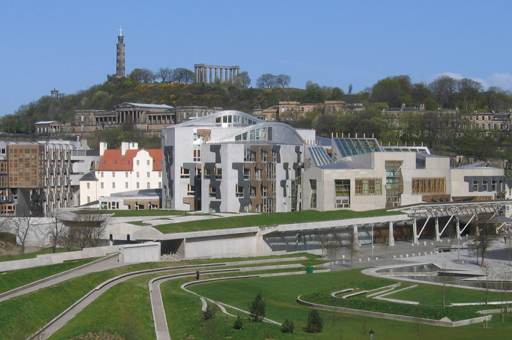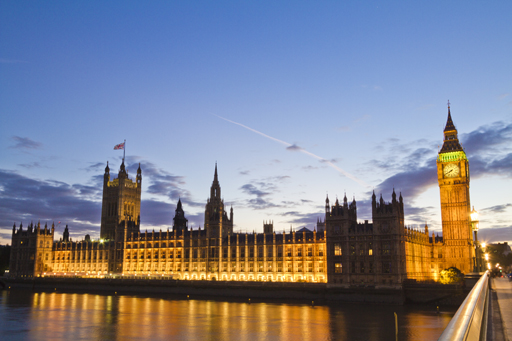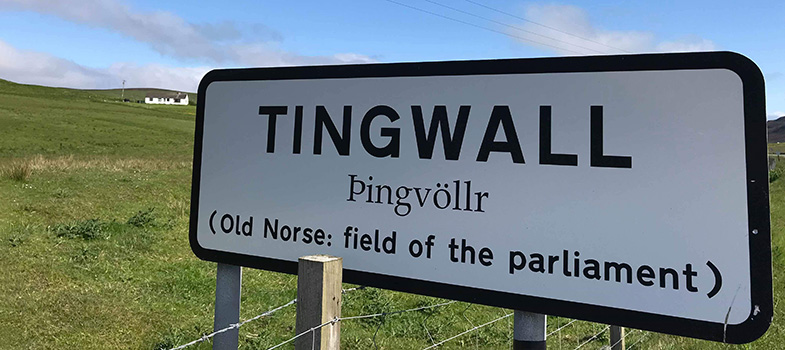5.1 How Scots is used in politics
The Scottish Parliamentary Corporate Body (SPCB) is responsible for (amongst other things) developing the Language Policy of the Scottish Parliament. It is a statutory body made up of five members – the Presiding Officer, who chairs the Body, and four Members elected by the Scottish Parliament (MSP). Members are elected as individuals to represent the interests of all the MSPs and not as party representatives.
Who decides what languages are used?
The Scottish Parliament

The working language of the Scottish Parliament is English and the Scottish Parliament legislates in English only. If a Bill is translated into a language other than English, the English language version will always be the authoritative version. With the prior agreement of the Presiding Officer, MSPs may use any language in parliamentary debates. In committee meetings, the prior agreement of the convener should be sought.
Proposals for bills, motions, amendments and questions must be in English, but may be accompanied by a translation in another language provided by the MSP. When such a translation is provided, it will be published in the Business Bulletin along with the English text of the proposal, motion, amendment or question.
Gaelic has special status in the Scottish Parliament under the Gaelic Language (Scotland) Act 2005. There is no equivalent Act for Scots. This distinction is clear in the SPBC Language Policy 2013-18, which states that:
The SPCB’s Gaelic Language Plan 2013-18, required under The Gaelic Language (Scotland) Act 2005, seeks to give effect to the principle that the Gaelic and English languages should be accorded equal respect. The SPCB, for historical and cultural reasons, also recognises the use of Scots.
This commitment is continued in the 3rd edition of the SPBC Gaelic Language Plan. However, the documentation in the 3rd edition document, which includes details about the consultation for the 3rd edition, states that ‘[s]everal respondents welcomed the plan and also stated that the Parliament should make more provision for Scots too’, which highlights a marked awareness of the different treatment of both languages (Scottish Parliamentary Corporate Body, 2018, p. 47).
Parliamentary signage features only English and Gaelic. Similarly, parliamentary literature - such as the ‘Fact Sheets’ located in the public area of the Scottish Parliament, which explain to visitors and the public how aspects of the Parliament work - are not provided in Scots (though are available in English and Gaelic, as well as a range of other languages including German, French, and Chinese). Gaelic is also treated differently in the Official Report, as you will learn about below.
Activity 4 
You just learned that different languages are used for different publications and communications in the Scottish Parliament. Do you think the use of particular languages in a parliament building is significant? Why? Take a note of your response, then compare it with our model answer.
Answer
This is a model answer. Your answer might be different.
I think that many people might believe that the use of particular languages in a parliament building is important, because the use of a language in a parliament building shows respect towards that language. Particularly when it is an indigenous language to that country. It assists in raising the status of the language within the minds of the population.
The UK Parliament

English is the language of proceedings in the House of Commons - as determined by the Procedures Committee. English alone may be used in the Chamber. However, there are moves underway to allow Welsh to be spoken in the Chamber during proceedings of the Welsh Grand Committee as outlined in this BBC News [Tip: hold Ctrl and click a link to open it in a new tab. (Hide tip)] article.
As a result of The Welsh Language Act 1993, Welsh can already be used in limited circumstances outside of the Chamber. No other languages have any special status in the UK Government. The UK Government stated the following in response to a report on the use of the Welsh language in the Welsh Grand Committee:
The status provided by the Welsh Language Act 1993 is unique within the United Kingdom. It is this status that forms the basis of the derogation for the use of the Welsh language in particular circumstances in the House of Commons. As there are no other languages with a similar status in statute, we do not perceive there to be a case for a similar derogation to apply to other languages.
In the actual report, the UK Government stated that they ‘detect no calls for the use of other minority languages in parliamentary proceedings', (UK Parliament, 2016).
Similarly, a report of the Procedure Committee published in December 2016 stated that ‘the Committee notes the unique status of the Welsh language in the United Kingdom [and …] detects no demand for the use of languages other than English or Welsh in Parliamentary proceedings at Westminster’, (UK Parliament, 2016).
Discrepancies in the status of the UK’s indigenous languages 
Considering the timing of the parliamentary publications above, it is interesting to contemplate why the other two languages in the UK, Gaelic and Scots, which had been granted the status of indigenous languages in 2005 and 2015 respectively, were not included in the report and its recommendations.
Why do you think Welsh was considered to have a ‘unique status’? Could it be related to the way in which Welsh was and is used in Wales? Could the ‘image’ of an indigenous language play a part in such decisions? Does the number of speakers of such language matter here, or is it important to what extent the language is used in written communication?
Please note that the strong political dimension of the use of indigenous languages can for example be observed in current discussions in Northern Ireland around the role and official status of Ulster Scots and Irish.
5. Introductory handsel
